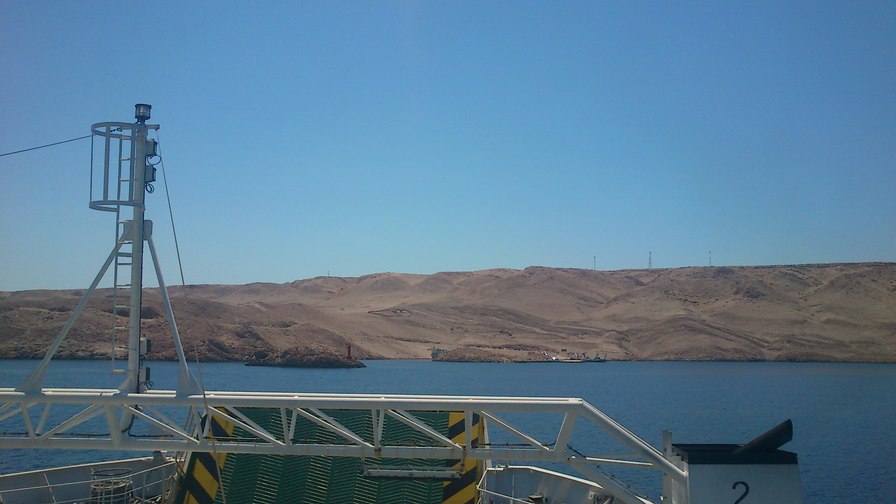The most memorable part of travels that I took this summer in Europe is a 16-hour walk in Julian Alps in Slovenia, from the Tamar Valley to the Soca Valley over the top of Jalovec. In this picture, which I made ten years ago from the top of another mountain, Mangrt, Jalovec is visible in the foreground on the right.
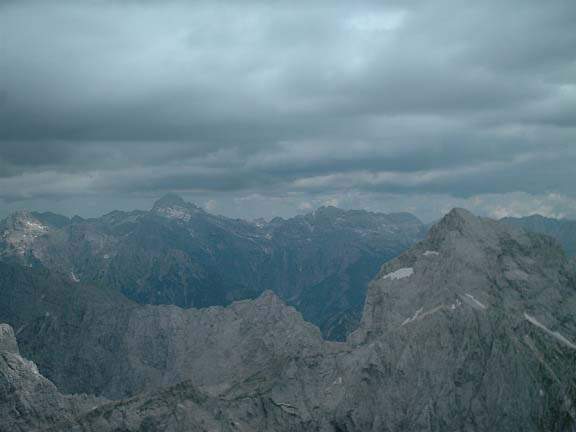
At that time I thought I will soon conquer Jalovec, because at Triglav, the highest mountain there, which is leftmost at the picture, I have already been before. That "soon" lasted for nine years. Too long. Here is now the image of some ten days ago which shows Mangrt, along with the peak of Jalovec:
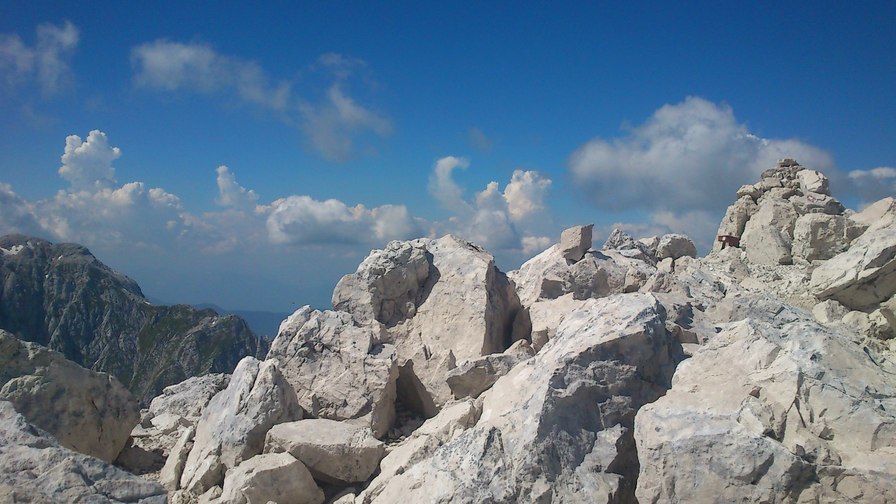
Here is the Triglav from Jalovec, now there is nothing left between:
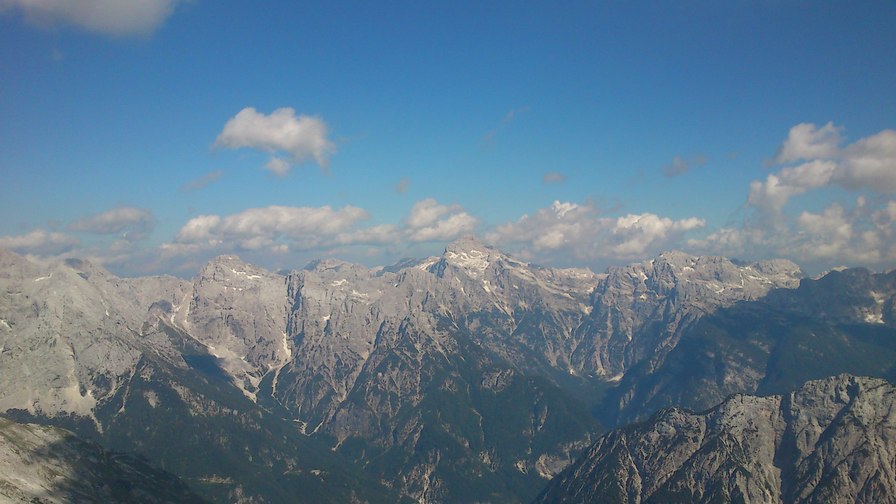
Indestructible backpack, 21 years old and still serving, (this I call a good purchase), on top of Jalovec-it has been on all these tops and at many more places.
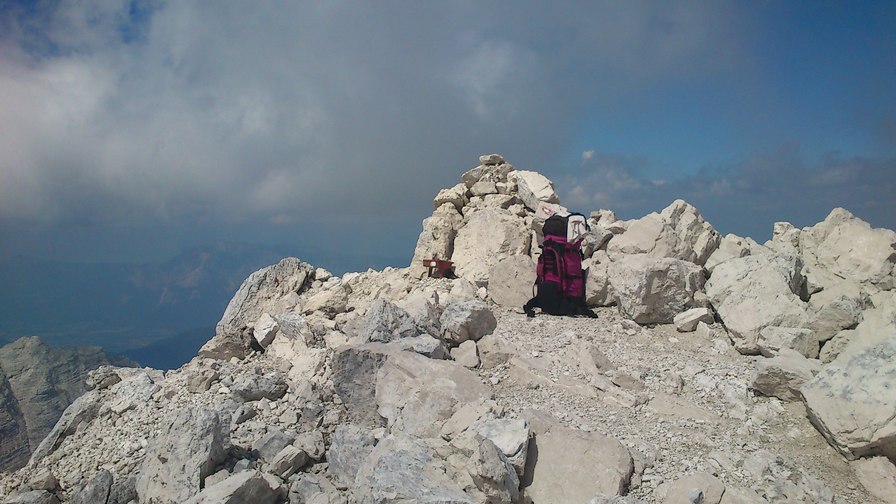
Jalovec I have not visited because the description of the hike is "long and strenuous". Justified. The path that I have chosen, from Planica to Tamar Mountain House and accross the Kot's saddle, and then accross the top of Jalovec to the house on Soca river source took me 16 hours. According to the Slovenian guidebook, it should take about 14 hours of walking, but the part went to breakfast in the house in the valley of Tamar. Lady who works there, despite the early morning, prepared eggs for me and gave me an additional bottle of water, which was much needed for a hike. I started from Kranjska Gora to Rateče-Planica 5:47 AM, too early for any kind of shop, and I arrived there the previous day from Germany after 9PM, too late to shop. A mentioned lady left a smile in the valley (at so early an hour I could hardly elicited a smile, too), but not her kindness, a big thanks to her. The sun was just rising up behind the mountains:
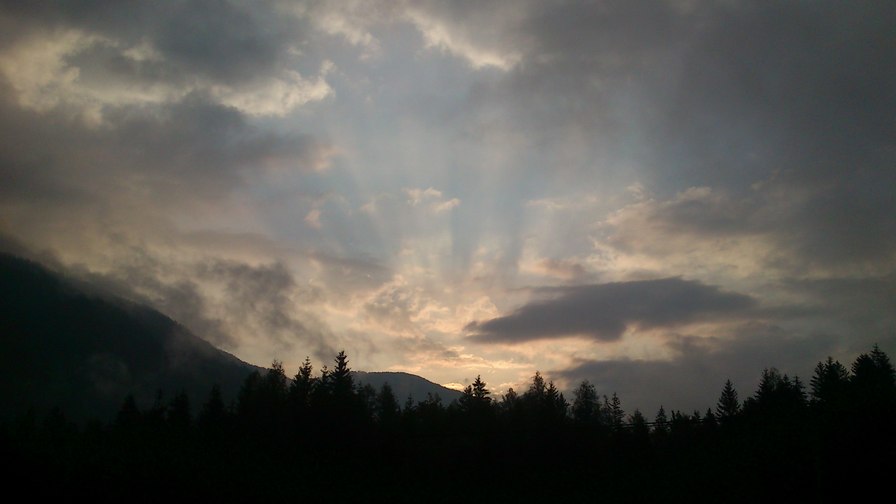
Some photos from Tamar, two possible uses of local variety of traditional hay drying storage:
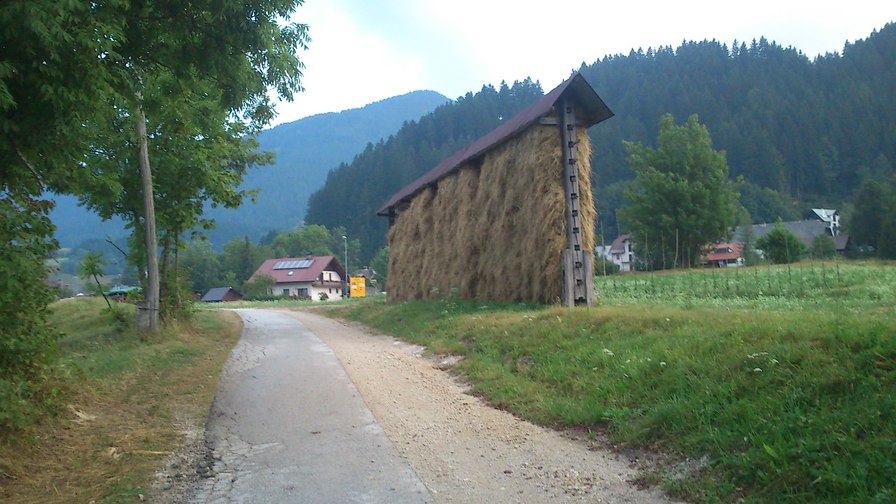
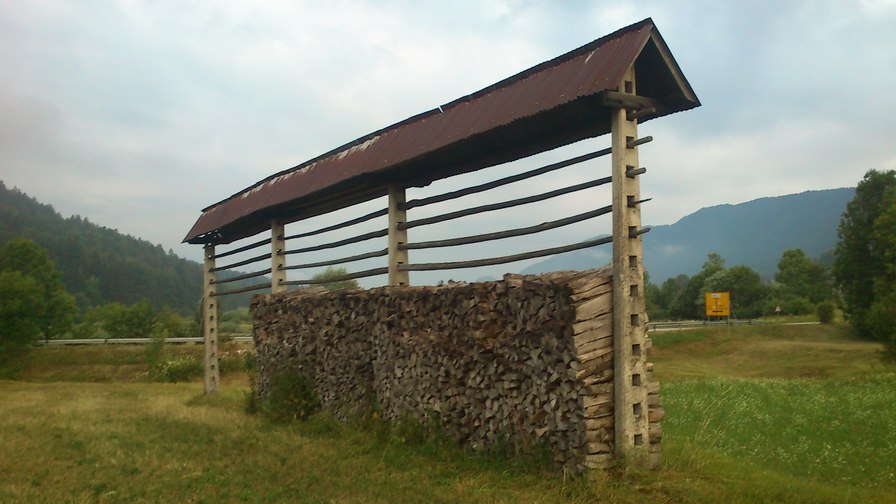
Here is the oldest and largest ski-jumping place in the world, Planica, preparing for an event in 2017:
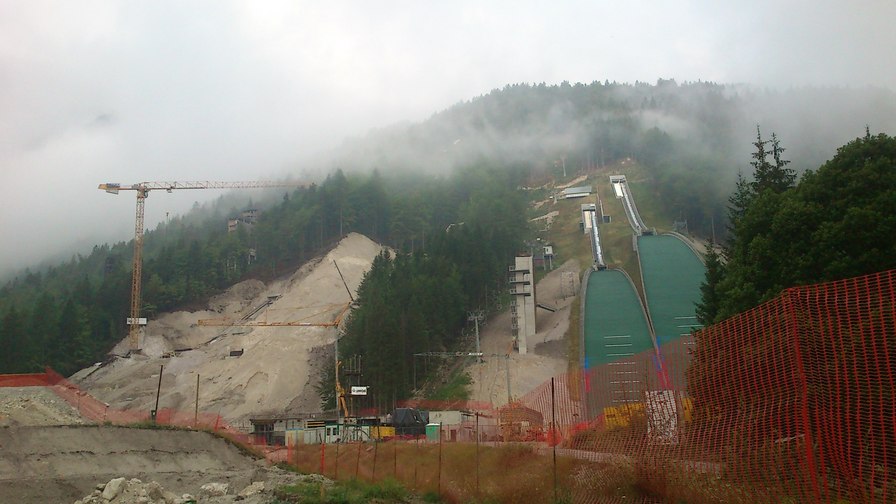
The Home in Tamar Valley:
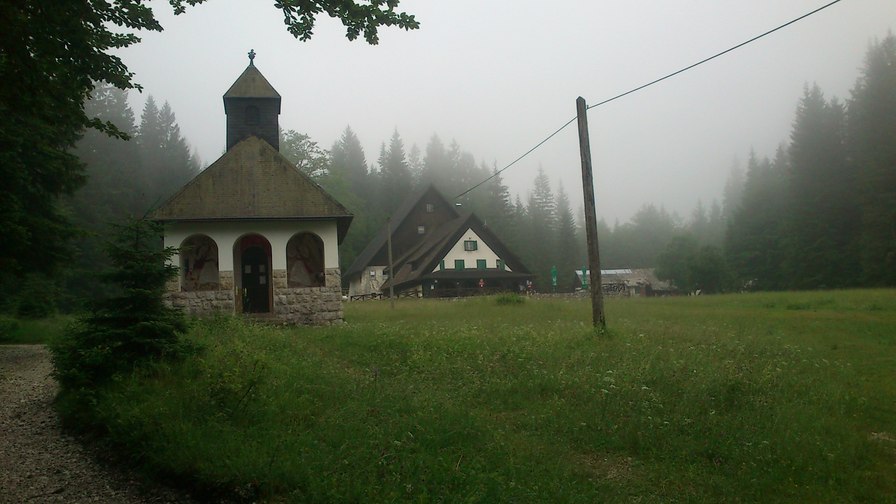
Interesting walls:
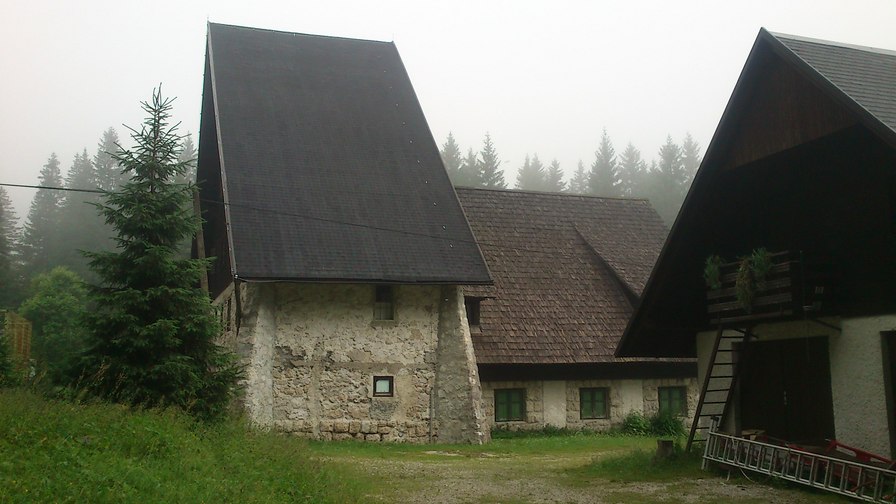
Here Jalovec briefly showed above the Tamar Valley, most of the time it was in the morning clouds and fog:
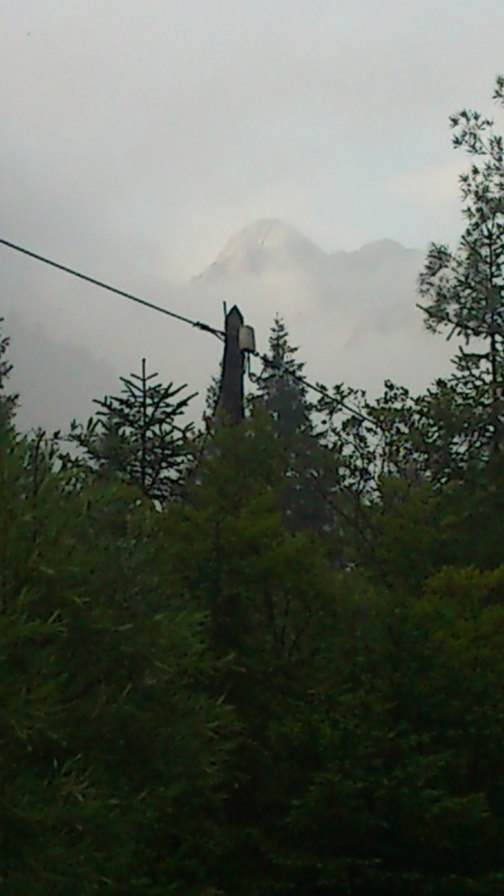
Top viewed from a hike to Kot's saddle:
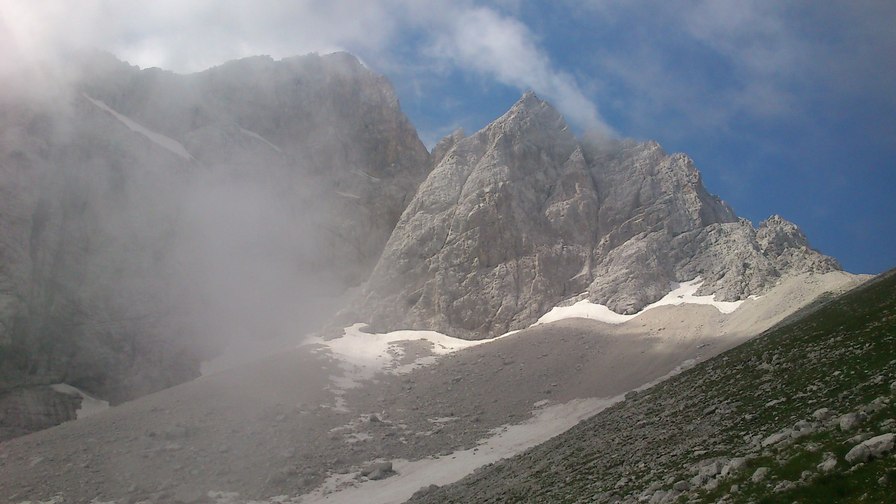
This ice almost costed me a peak of Jalovec, and maybe much more:
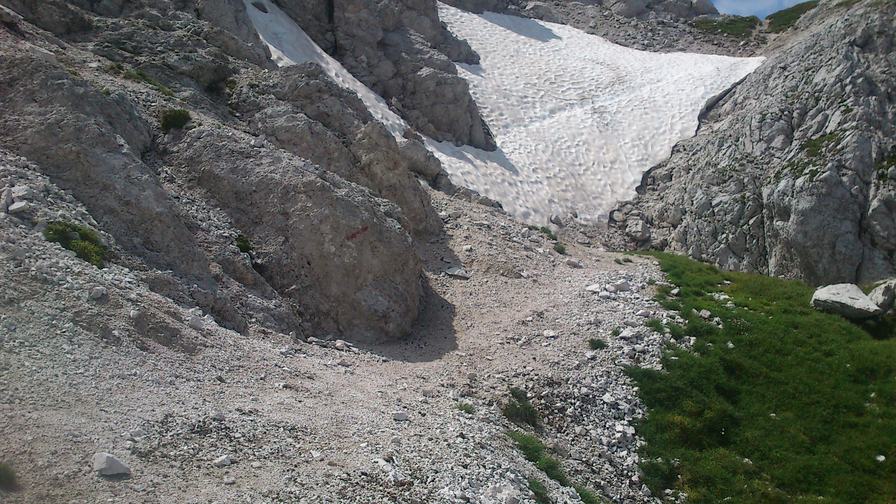
What you do not see in that picture is the throat under glacier, something like in the image below, which is from one of the following glaciers, at the actual one I did not think about taking pictures but about staying alive):
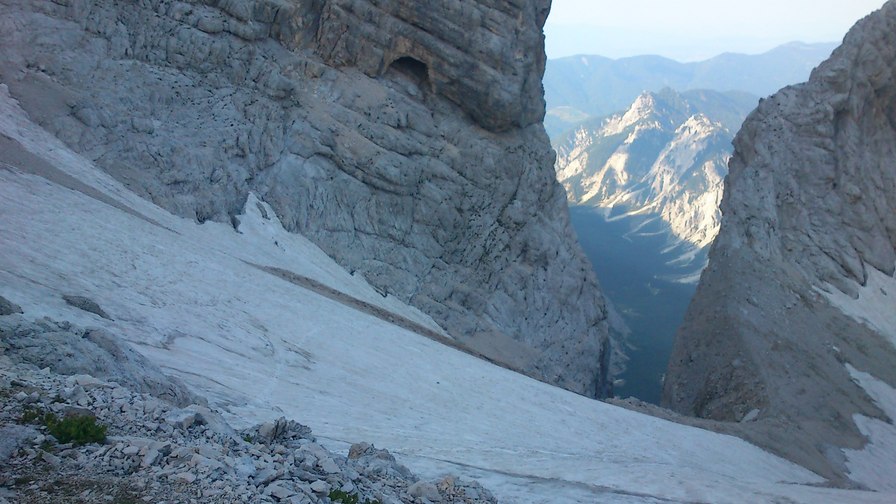
Lowest part of the rubble below ice was only ten meters, but just above the throat. When I tried to walk there, it was sliding down and I realized that the only way was the one which someone tried before me: over the glacier. But the previous person had ski poles, I had only 14 kg backpack (definitely too heavy) and summer Salomon shoes, which have not yet seen a real ice. And I had a perfectly classic fear of heights. This resulted in a one-hour search for other possible paths, the decision to go across sand and giving it up, even the decision to go back, but I finally went over the glacier. Luckily it was not a too long one, and fortunately did not have too much ice, but real snow, so summer shoes could cope with it. When I crossed it, I almost threw breakfast out from the stomach, so terrified I was! I do not remember that it would ever happen to me (maybe once on Triglav, at the overhanging part of the trail when I was hiking from the western side, but it was to a much lesser extent), but here the feeling of weakness in the legs kept for some time. Did I soften with age, or that was really so dangerous a place? Judge for yourself. Choice of the downward hike that has been described as the easiest in the guide-book was a very good one, although the edge of the ridge was quite steep.
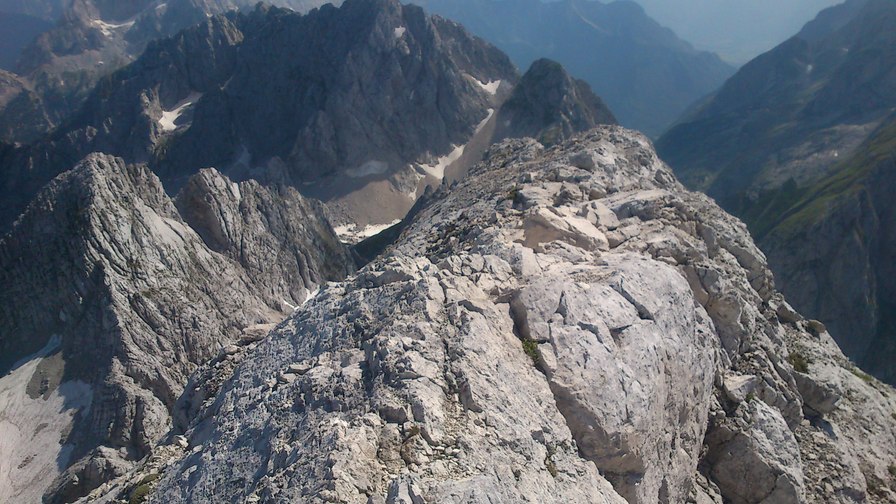
I did not dare to even raise the camera up, but I did it from the hip. View to the left:
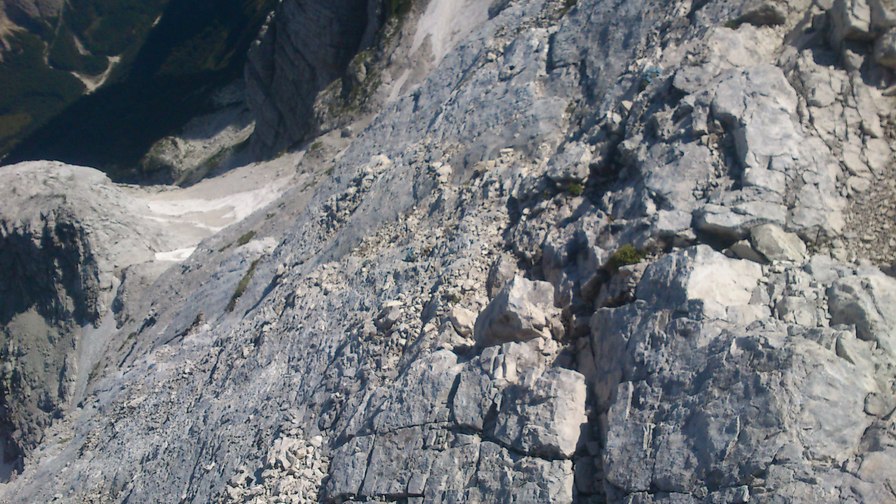
and to the right:
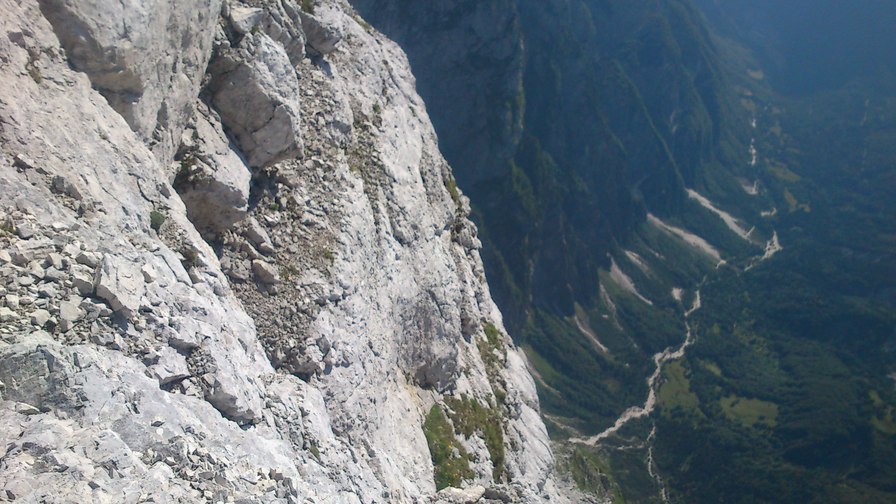
Those few hundred meters of the ridge is in an easy thing for "of experienced mountaineer", piece of cake, but I felt pretty much like "retired mountaineer". I will not even try to imagine what crossing it looks like in the wind or a storm, then one could make it only creeping over it. Just below the ridge, above a glacier, flowery meadows. Colors like those are only possible in such a place.
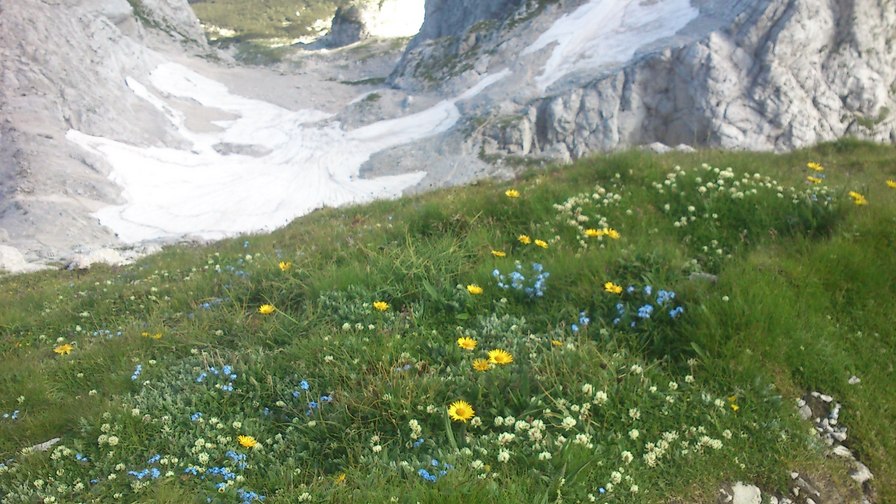
This is a steep ridge, down which I did mostly free climbing. It is also quite hard, but one feels safe, clinging to the rock.
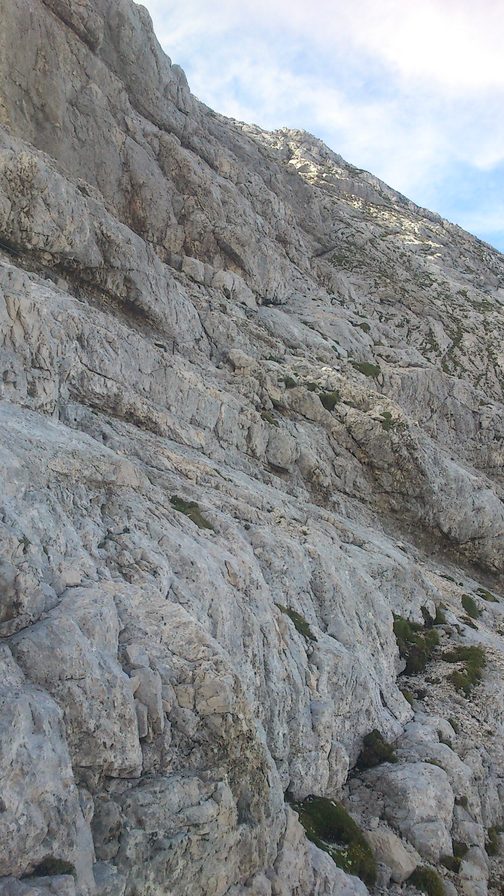
Mountain goats laugh at clumsy man, I came across a herd which fled from me:
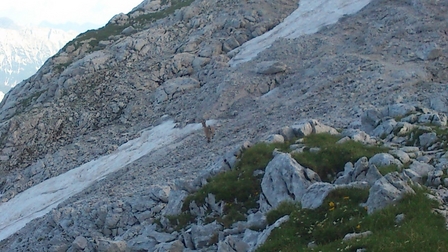
Another ice, this time much longer, I had to go in zigzag:
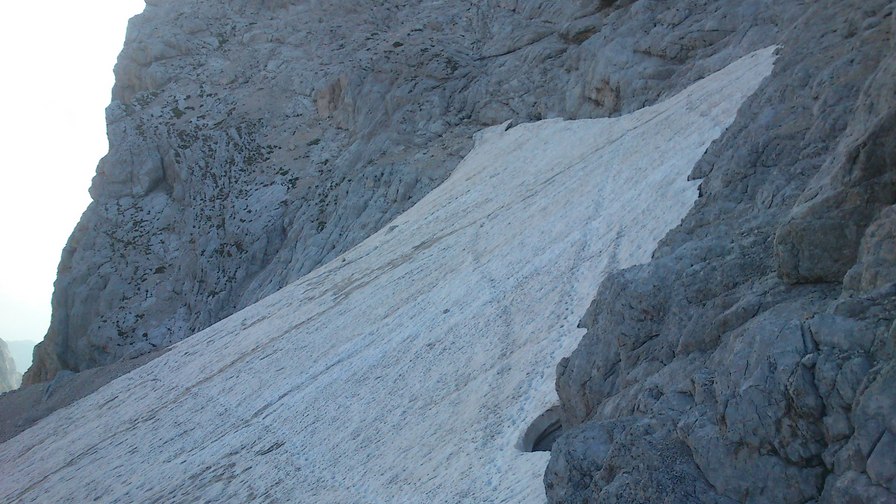
There I made a mistake and I did not piled some snow into the bottle. There was a long, two and a half hour brisk walk from the glacier through the woods to the Trenta valley, which will remain in my memory as awful, as I ran out of water. Be sure to take at least 3 liters of water, or take snow from the glacier.
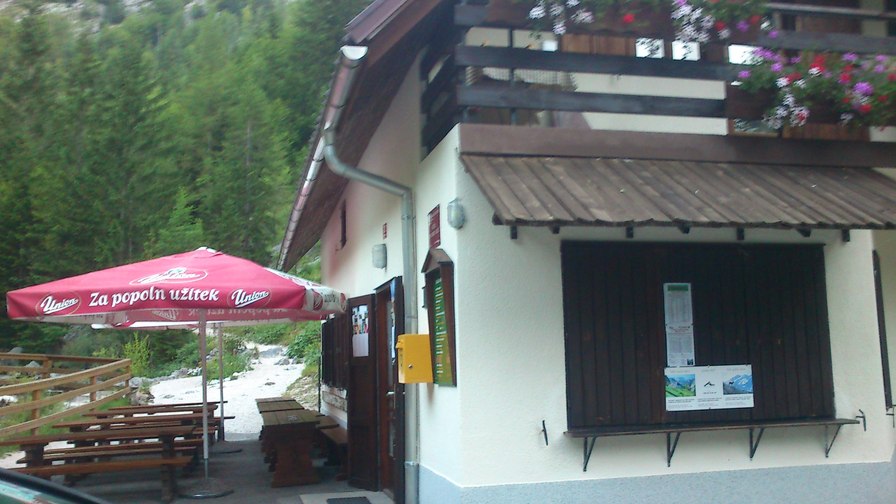
At House at the spring of Soca river, to which I have come only at night, nice ladies working there have welcomed me with a simple dinner and a beer, and I slept tight until morning. They were so impressed that I came from Planica over Jalovec that they recognized me a status of honorary mountaineer although I had no membership card (long ago passed times when I had a valid identity card of anything in Europe) and charged me only a membership rate for overnight. They would not even charge for dinner, only beer. My thanks goes to them for such a treatment, indeed, it's nice to see that a genuine effort is still respected. By the way, it was a beautiful summer Sunday and I have met only one couple of hikers around 2PM, all other times it was like in a story, mountains and me. In honor of Soca river, in the morning I valked 12 kilometers to the Soca village. Not a problem, even after such a day as I had the day before, since the scenery is beautiful:
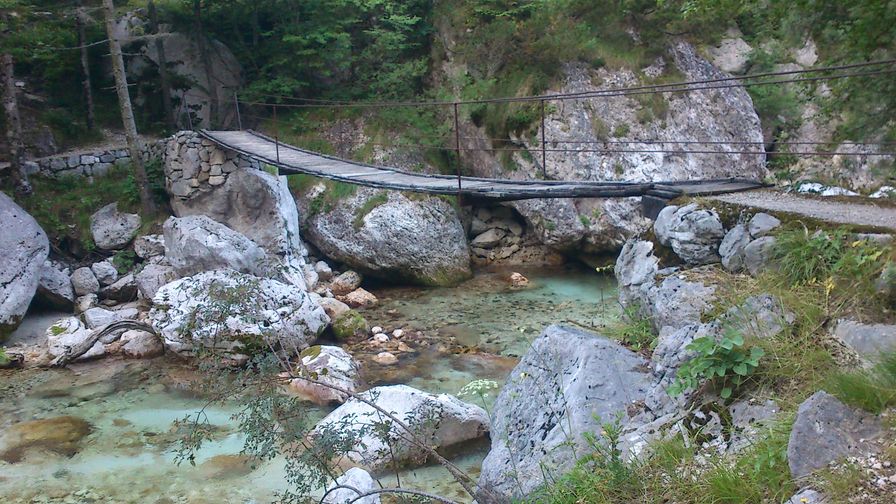
Always when here, I make a point of visiting the Russian cemetery from the WWI, where they buried the Russian prisoners killed in an avalanche during the construction of the mountain road to Vrsic Pass.
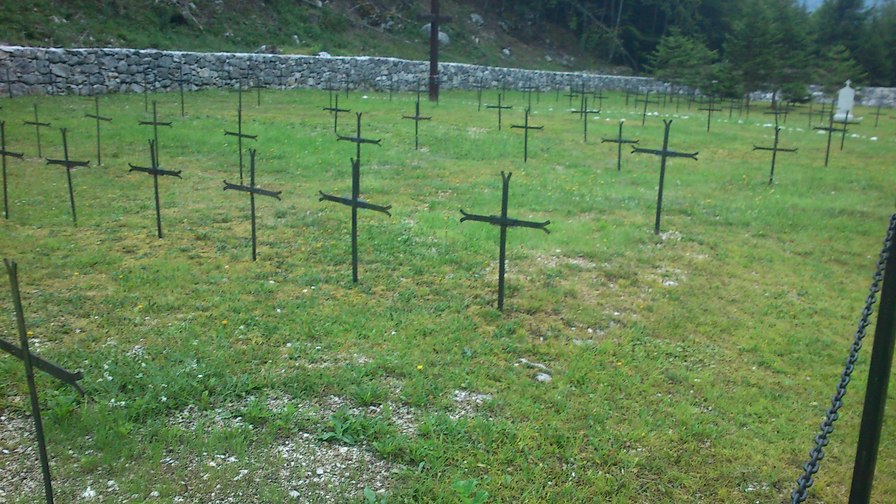
It is one of the most memorable examples of absurdity of war that I know, to start from distant Russia and finish being killed by avalanche in this beautiful valley ... On the way to House Zlatorog (which seems to be not working as a mountain hut any more?), a small haystack, so typical for the Alps:
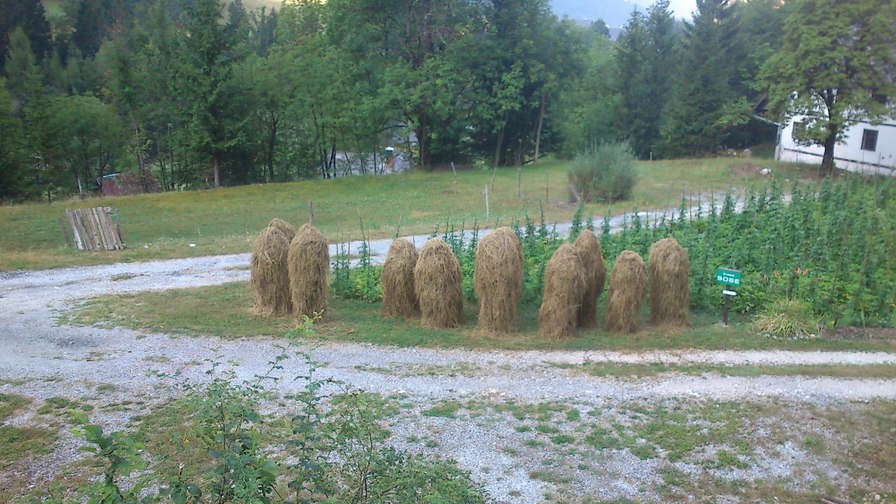
Down the Soca river, approaching Gorica, fine towns:
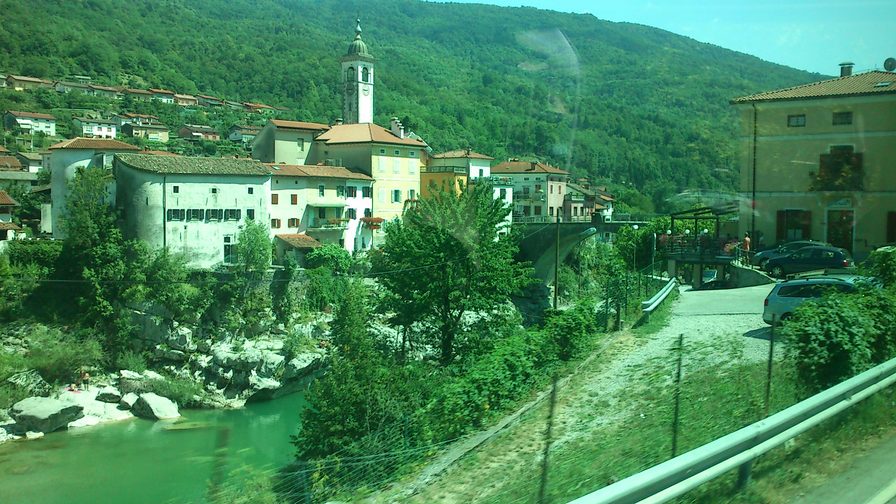
Finally, home sweet home. I think a look at my own island from the sea, when one arrives from Velebit mountain, explains why I am so attached to the stone, whether in the Alps or at the seaside:
